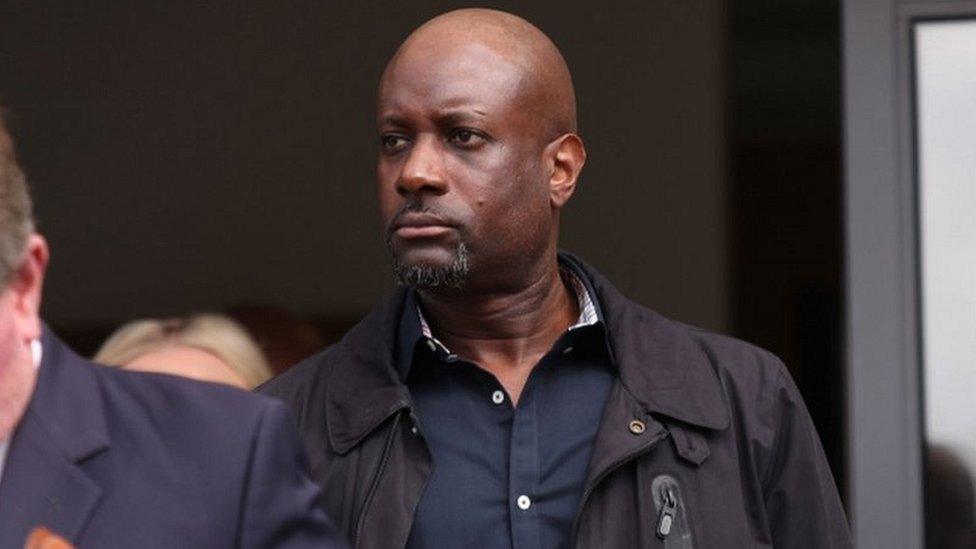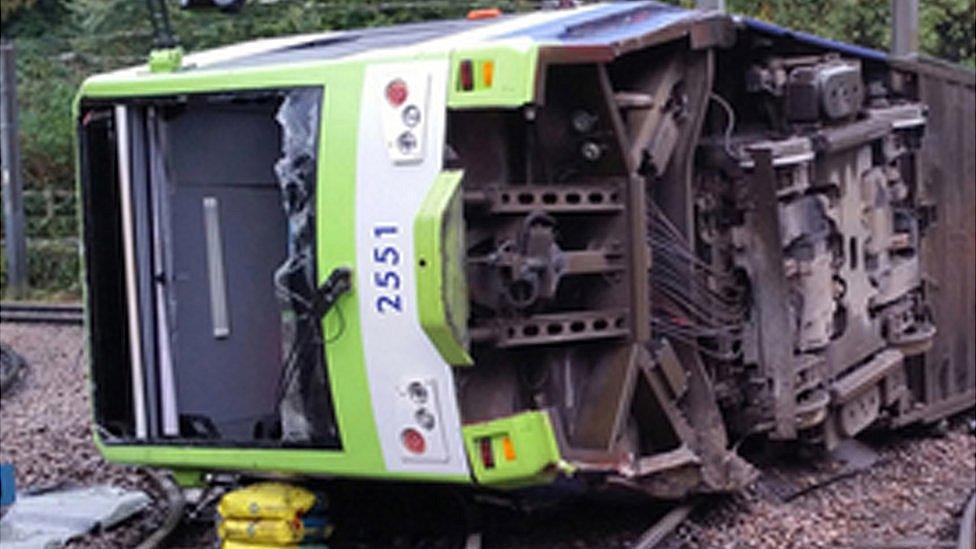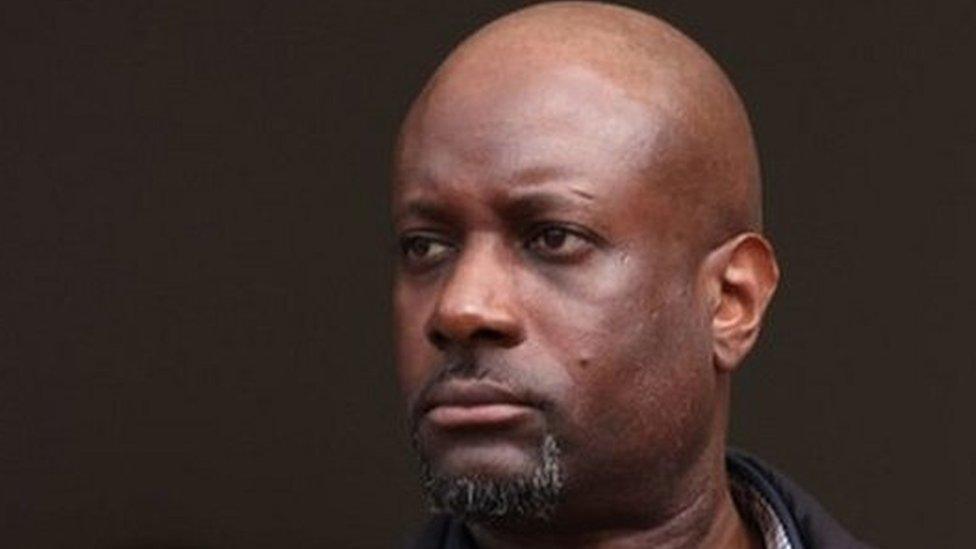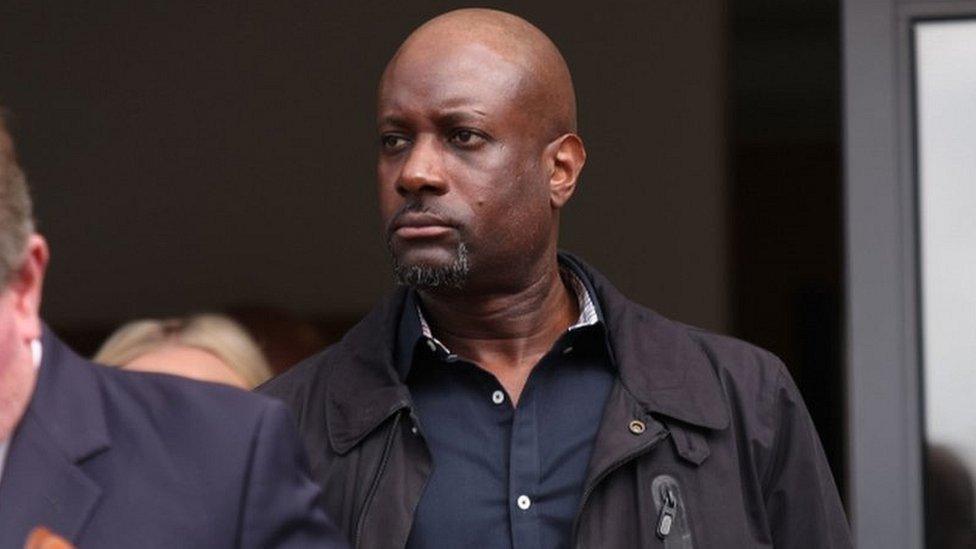Croydon tram crash driver apologises to victims' families
- Published

Tram driver Alfred Dorris denies a single charge of failing to take reasonable care at work
The driver of a tram that crashed killing seven people has told the victims' families he is "deeply sorry" for becoming "disorientated".
Alfred Dorris, 49, is on trial over the crash in Croydon, south London, on 9 November 2016.
He told the Old Bailey he became "confused" but, after the crash, "could not explain how it happened".
Mr Dorris, of Beckenham, south-east London, denies a charge of failing to take reasonable care at work.
It is alleged Mr Dorris was driving at three times the speed limit when his tram left the tracks on a sharp bend near Sandilands.
The seven passengers who were killed were Dane Chinnery, Donald Collett, Robert Huxley, Philip Logan, Dorota Rynkiewicz, Philip Seary and Mark Smith.
A total of 69 passengers were onboard, 19 of whom were seriously injured.
Giving evidence for the first time in his trial, he broke down crying as he described his final journey.
He said he became confused and convinced he was heading in the opposite direction.
Mr Dorris said that when he realised he was approaching the curve, he went into "shock".
Addressing people in court affected by the disaster, he said: "I woke up in the morning expecting to have a normal day.
"I'm a human being and sometimes as a human being things happen to you that you are not in control of.
"I'm sorry that I became disorientated.
"And I'm deeply sorry I was not able to do anything to reorientate myself and stop the tram from turning over.
"I'm deeply sorry."
He added: "I wanted to reach for the brake but at that stage the tram was already going over and I was thrown out of the chair and I could not do anything," he said.
Earlier, Mr Dorris became distressed in front of victims' families and wiped away tears as he described being arrested on suspicion of manslaughter after the crash.
He said of the weeks following the crash: "I was just all over the place, just broken, disbelief at what had happened."
He also said he had been "proud of" of his job and had enjoyed it.

The tram was carrying 69 passengers when it derailed
The prosecution alleges he may have had a "micro-sleep" while driving the tram. But Mr Dorris told the court he had "never" had problems with fatigue, despite working early shifts.
Mr Dorris went on to describe how he had continued to "struggle" since the crash, reaching his "lowest point" during the Covid-19 lockdown, suffering with post traumatic stress syndrome.
He said on one occasion he became aggressive with his wife, and then separated from his family.
"That was the last time I saw my family, the last time I saw my daughter," he told the jury.
The trial continues.

Follow BBC London on Facebook, external, Twitter , externaland Instagram, external. Send your story ideas to hellobbclondon@bbc.co.uk, external
- Published22 May 2023

- Published18 May 2023

- Published17 May 2023
